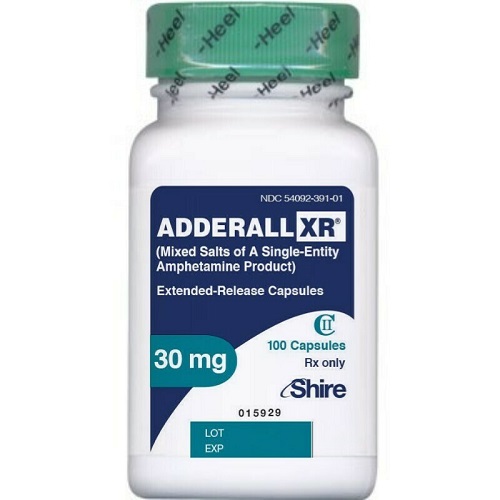Adderall is a prescription medication used to treat attention deficit hyperactivity disorder (ADHD) and narcolepsy. It is a combination of amphetamine salts and belongs to a class of drugs known as stimulants. Here’s a comprehensive overview of its uses, side effects, and other important information:
Uses
- ADHD: Adderall is commonly prescribed to manage symptoms of ADHD, such as inattention, hyperactivity, and impulsivity. It helps increase attention and decrease impulsiveness and hyperactivity in both children and adults.
- Narcolepsy: Adderall can also be used to help manage excessive daytime sleepiness associated with narcolepsy, though it is not the first-line treatment for this condition.
How It Works
Adderall works by increasing the levels of certain neurotransmitters in the brain, including dopamine and norepinephrine. These neurotransmitters play a role in attention, focus, and impulse control. By enhancing their activity, Adderall helps improve concentration and reduce hyperactive behaviors.
Dosage and Administration
- Forms: Adderall is available in immediate-release (IR) and extended-release (XR) formulations.
- Immediate-release: Typically taken 2-3 times a day, with doses usually ranging from 5 mg to 40 mg per day.
- Extended-release: Usually taken once daily, with doses ranging from 10 mg to 60 mg per day.
- Administration: It’s generally taken orally with or without food. The XR formulation should be taken in the morning to avoid potential insomnia.
Side Effects
Common side effects may include:
- Insomnia: Difficulty sleeping, especially if the medication is taken too late in the day.
- Appetite Loss: Decreased appetite and weight loss.
- Dry Mouth: A common issue with stimulant medications.
- Headache: Headaches are a frequent side effect.
- Nervousness or Anxiety: Some users may experience increased anxiety or restlessness.
Serious side effects can include:
- Cardiovascular Issues: Elevated heart rate, high blood pressure, and in rare cases, more severe issues such as chest pain or heart attack.
- Mental Health Effects: Symptoms like paranoia, hallucinations, or severe mood swings can occur, especially at higher doses.
- Growth Suppression: In children, long-term use of Adderall may affect growth rates, though this is usually reversible upon discontinuation.
- Dependence and Abuse: There is a potential for misuse and dependence, particularly with the immediate-release formulation.
Warnings and Precautions
- Drug Interactions: Adderall can interact with other medications, including antidepressants, blood pressure medications, and other stimulants. It’s important to inform your healthcare provider of all medications you are taking.
- Medical Conditions: Use with caution in individuals with a history of heart problems, high blood pressure, psychiatric disorders (e.g., bipolar disorder, severe anxiety), or a history of substance abuse.
- Pregnancy and Breastfeeding: Adderall should be used during pregnancy only if clearly needed, as its effects on the fetus are not fully known. It can pass into breast milk, so breastfeeding mothers should discuss the risks with their healthcare provider.
Considerations
- Monitoring: Regular monitoring by a healthcare provider is important to assess the effectiveness of the medication and manage any potential side effects.
- Potential for Abuse: Due to its stimulant properties, there is a risk of misuse and abuse. It should be used exactly as prescribed and not shared with others.
Safe Use
- Follow Prescriptions: Take Adderall as prescribed, and do not adjust the dosage without consulting your healthcare provider.
- Avoid Alcohol and Other Stimulants: Alcohol and other stimulants can increase the risk of side effects and should generally be avoided.
Always consult with your healthcare provider to tailor the medication to your specific needs and to monitor for any adverse effects. If you experience severe side effects or signs of misuse, seek medical attention promptly.


Reviews
There are no reviews yet.